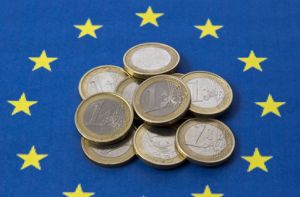Budget, EU – Baltic States, Financial Services, Legislation, Modern EU
International Internet Magazine. Baltic States news & analytics
Sunday, 14.12.2025, 15:56
EU Budget after 2019: funding more with less
 Print version
Print version |
|---|
As European member
states decide the EU’s future, the Commission needs a budget that is fit for
financing common development issues with adequate efficiency.
Commissioner Günther H. Oettinger,
in charge of budget and human resources, argued that in order to tackle new challenges,
the member states need sufficient European budget. “We can either spend less or
find new revenues, he underlined and added that “whatever we do, each Euro
invested from the EU budget must add value and have a positive impact on
people's daily lives”.
Regional Policy
Commissioner Corina Creţu
that while making a new EU budget, “we have to make it simpler and more flexible with
ambition and imagination to use this powerful tool for the EU to grow faster, ever
closer, and leave no one behind in this globalised economy”.
Already in
September 2015, Jean-Claude
Juncker said that “We need a budget to achieve our aims. The budget for
us is therefore not an accounting tool, but a means to achieve our political goals.”
The EU budget faces tough challenges
The EU is expected
to play a bigger role in new policy areas like migration, internal and external
security or defence. Besides, the EU should also preserve its leading role on
the global stage, as a major humanitarian and development aid donor and as a
leader of the fight against climate change. That must be achieved with an EU
budget that will only get smaller following the Brexit, i.e. departure of the
United Kingdom from the EU.
Present reflection
paper looks at this challenge and puts the key elements for discussion on the
table, structured around the five scenarios of the White Paper: will the EU
simply carry on, do less together, move ahead at different levels of intensity,
do less but more efficiently or do much more together?
Each of these
illustrative scenarios for the EU’s future would have different consequences: both
in terms of how much to spend for what purpose, and on where the money could
come from. Options range from reducing spending for existing policies to
increasing revenues.
In addition, the
reflection paper sets out the basic features of the EU budget and charts the
principal trends and developments in key policy areas like cohesion and agriculture.
It also addresses over-arching issues like the added value of EU funding or the
articulation between EU funding and structural reforms in the EU member states.
Conclusion.
The reflection process initiated by the White
Paper and built on by the series of reflection papers will feed into preparing
the proposal for the next multiannual financial framework for the EU-27, which
the Commission intends to present in mid-2018.
The multiannual
financial framework lays down the maximum annual amounts which the EU may spend
each year in different policy fields over a period of at least 5 years. The
current multiannual financial framework covers the period from 2014 to 2020.
Each annual budget must comply with this framework.
In order to
sustain and further stimulate the debate on the issues raised in the reflection
paper, a number of public events will take place in the coming months, such as
the annual 'Budget focused on Results' conference organised by the Commission
on 25 September 2017.
Reflection paper of the
future of EU finances, see on:
https://ec.europa.eu/commission/sites/beta-political/files/reflection-paper-eu-finances_en.pdf.
More information
on the EU budget: = White
Paper on the Future of Europe; = Reflection
paper on the social dimension of Europe (26 April 2017); = Reflection
paper harnessing globalisation (10 May 2017); = Reflection
paper deepening the Economic and Monetary Union (31 May 2017), on
the basis of the Five
Presidents' Report of June 2015; = Reflection
paper the future of European defence (7 June 2017); - Reflection
paper the future of EU finances (28 June 2017); = "Future
financing of the EU", final report of the High Level Group
chaired by Mario Monti; = Multiannual
Financial Framework (2014-2020); = Future
of EU finances: Five Scenarios; = Future
of EU finances: Facts and Figures;
Reference: http://europa.eu/rapid/press-release_IP-17-1795_en.htm?locale=en.








 «The Baltic Course» Is Sold and Stays in Business!
«The Baltic Course» Is Sold and Stays in Business!

